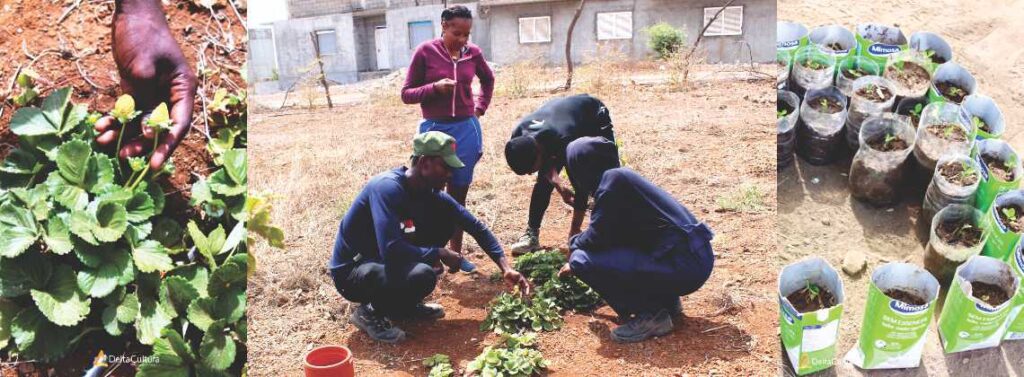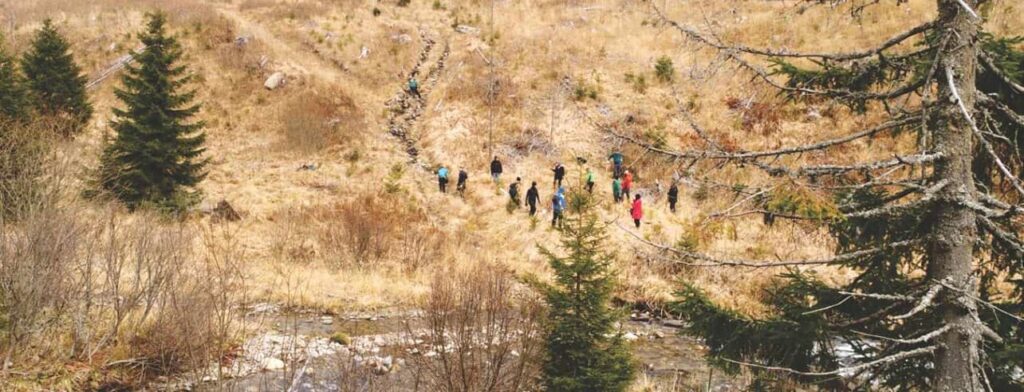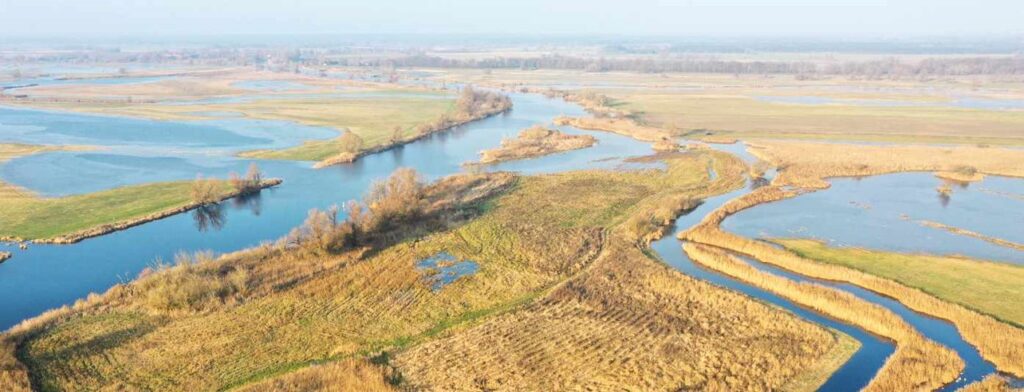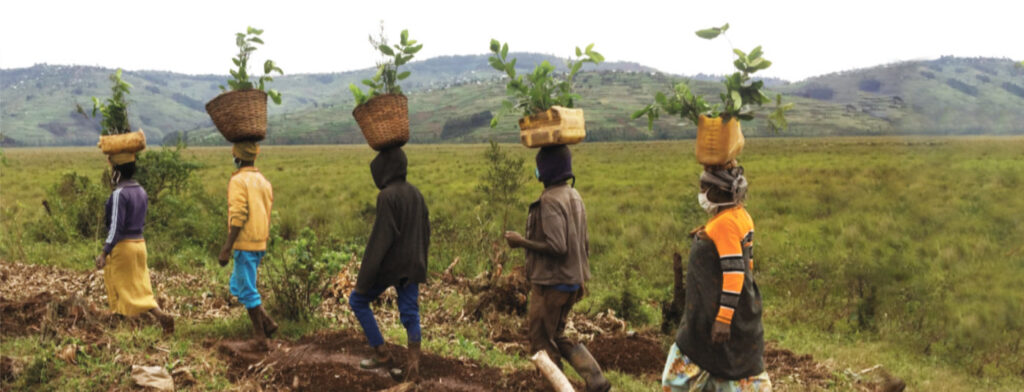Founding of a tree nursery on the Cape Verde islands

On the Cape Verdean island of Santiago, in the northern part of the city of Tarrafal, lies the Delta Cultura education and leisure centre, which was founded in 2002 by Florian Wegenstein and his wife Marisa. More than 300 children and young people are cared for in the facility every day, being given access to education and knowledge.
After the Daniel Schlegel Umweltstiftung had already established a permaculture vegetable garden with Delta Cultura in 2020 (find here the project report), a tree nursery was established in the beginning of 2022. On an area of approx. 3,400 m2 , Delta Cultura now has its own plant nursery with an agroforestry component. In the nursery, one specialist and two employees take care of the plants’ breeding, care and distribution, including the planting of the trees. Occasionally, groups of children come to help with the work and learn about agroforestry.
Only native trees are planted because they are adapted to the climatic conditions of the location. Currently, the widespread distribution of the acacia imported from Portugal is taking on unexpected dimensions. This tree stores valuable water during the dry season, which sustainably lowers the ground-water level. In contrast to native plants such as the flame tree, date tree and tamarind tree, which have reduced functioning during the dry season, the acacia sucks up water from a depth of up to 50 metres and stores it in its trunk in order to be able to supply itself during the dry season.
The tree nursery is very important for the local nature because different species can be grown on the area and as it serves as the only plant nursery for the region. Currently, various legumes, fruit trees and species specialised for the location such as pinhão, azedinha and cimbrom are grown. The nursery also produces its own compost, which is used as a fertiliser for plants and forms a biological cycle.
The majority of the grown trees are kept for one to two months and then given away for free. The smaller part is bred for several months and then given to private people and the Tarrafal community. In addition, all trees are regularly checked by volunteers and reported to Delta Cultura if necessary. In the future, it is planned that neighbouring regions will receive the trees as well.
In order to generate a sustainable effect, it is important to motivate and involve locals. At events taking place twice per year, trees are planted together with the community of Tarrafal to counteract the spread of acacia by planting native species. In addition, educational events are held four times a year to address the topic of climate change and highlight the importance of trees. The event is always held along with the planting of trees and the display of educational videos. On top of that, the Batuco group Delta Cultura ensures a good atmosphere with lots of drumming, dancing and singing. Already, the population is enthusiastically helping out and collecting old milk cartons to turn into growing containers for the tree nursery.






